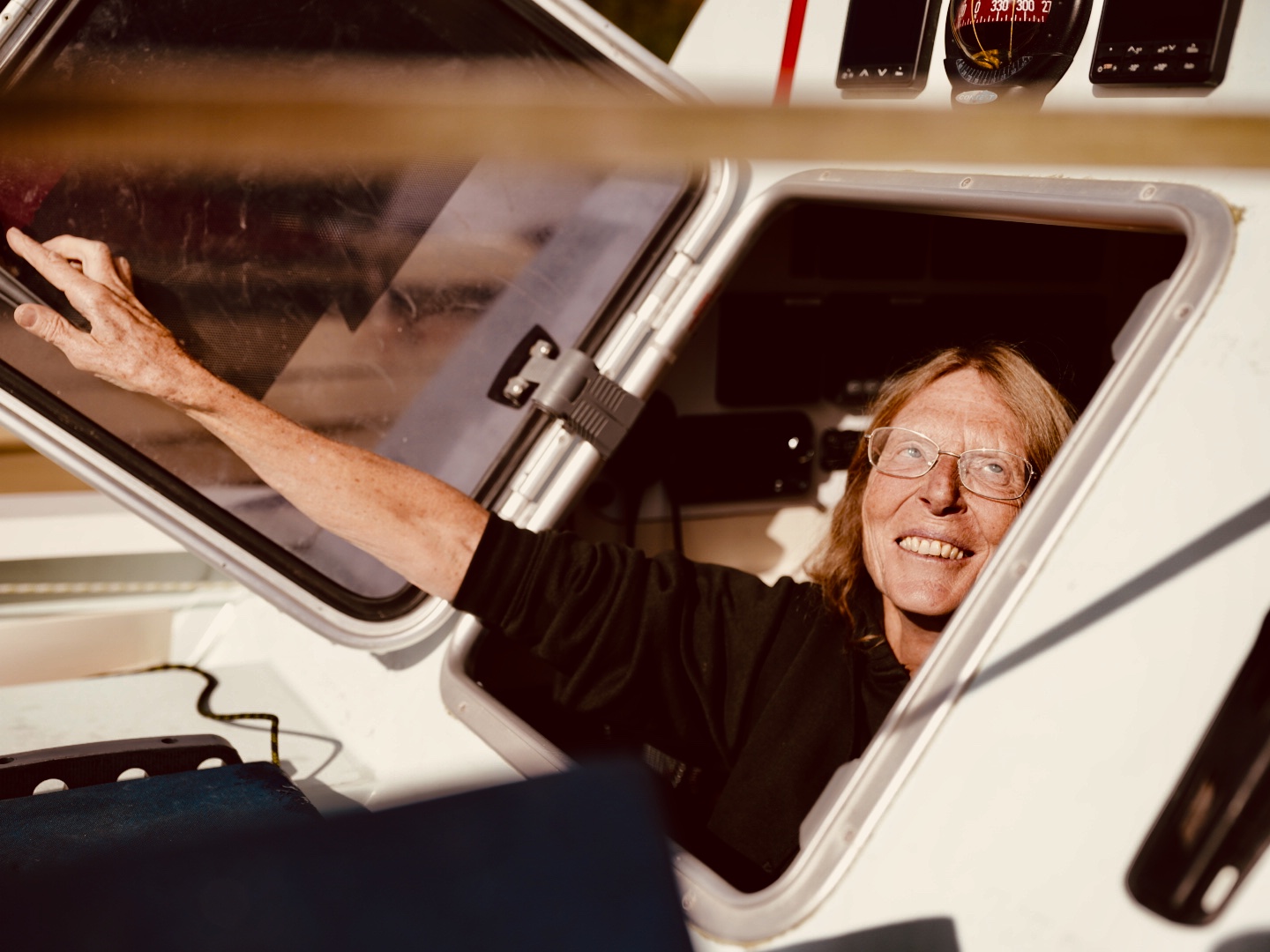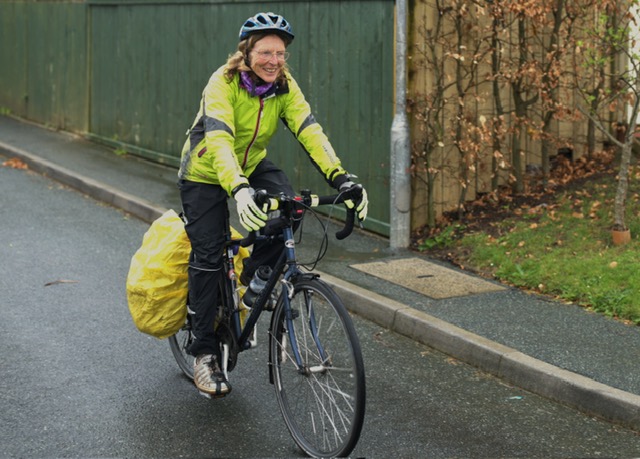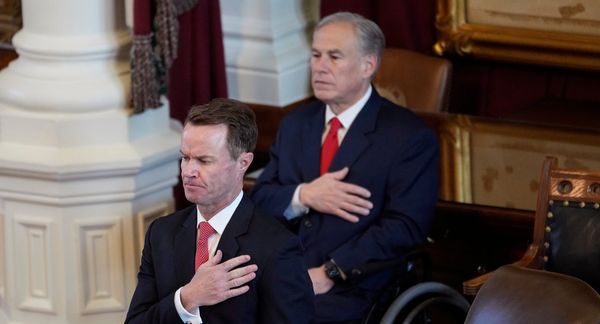
Cycling is an activity, or sport, you can enjoy at any age. Fitness writer Hannah Reynolds has been speaking to cyclists in their 40s, 50s, 60s, 70s and beyond, bringing tips, advice and inspiration from cyclists who are still pedalling as the decades progress.
Early next year, a quartet of women will set out to row the Atlantic. Along them will be Janine William who - at 70 - aims to become the oldest woman to row the ocean. And, she’s preparing with a lot of cycling.
Cruising Free is a team of four women setting out in January 2025 to row 3,200 miles from Lanzarote to Antigua. Williams will be joined by Sophie Pierce, who will be the first person to row an ocean with Cystic Fibrosis. The group wants to show that age and chronic health issues are no barrier to women taking on endurance challenges.
“I have never seen my age as a barrier to doing anything at all,” Janine explains, “I was a very active child, always out on my bike, climbing trees, running, always doing anything ‘hard’. It was unusual to be a girl loving sports day even in primary school.”
Cycling has been a part of her life since an early age, “if we wanted to go anywhere we always used to cycle,” this changed when she left home and went to college but cycling became part of her life again when at 24 she went travelling, “I got a job in Australia and I needed a bike for my journey to work. When I returned to Pembrokeshire I joined a cycling club and started to do time trials and regular cycle touring holidays. I am still touring and doing sportives now.”
Janine had sailed since she was a teenager. However, as her life circumstances changed there wasn’t room for cycling, sailing and rowing “I had 4 kids so I couldn’t do sailing and rowing so I ditched the sailing.”
Competition has been a part of Janine’s experience in rowing and cycling, “I have raced across the Irish Sea three times, and I raced a triathlon in Wales which had rowing instead of swimming.” In all her sporting activities she has leant towards the endurance side, “I’ve always done as much as I can. I’m much more a stamina person.”
Cyclists make great rowers (and vice versa)

Cycling has allowed Janine to work on her fitness and endurance in preparation for the Atlantic row. Rowing and cycling are very complimentary sports with many rowers using cycling as part of their training. Several athletes have even made a switch from rowing to cycling, such as British Olympic cyclist Rebecca Romero who won her first medal in rowing and more recently Jason Osborne, an Olympic medallist in rowing who is now a cycling esports World Champion and racing professionally for Deceuninck-Quick-Step.
Ageing has crept up gradually, “I’m still competing in rowing races and our team is still winning but I’m slower up hills on my bike,” Janine says. What has changed a little is her attitude to cycling, “I’ve stopped trying to improve my times. I got stuck in Australia during the Covid-19 pandemic. At first, I started trying to improve my times over set distances but I realised I was no longer enjoying that. Now if I want to push myself I extend the distance rather than increase the speed”, not so in rowing though where Janine is still racing and chasing faster times.
There are some specific challenges that ageing brings, “as I’ve got older I have started to recognise that I need more recovery time, that is something I am going to need to address on rowing the Atlantic.” Janine also has some arthritis, limiting her ability to run. Despite this she still took part in a triathlon finishing 2nd in her age group and 150th out of 300th, “I couldn’t run at all so I did the race without training and just ran on race day. I think a lot of it is a mindset.”
"I just feel free"
The mental aspect of sport is very important to Janine, “I remember someone who doesn’t cycle asked me ‘what is it you enjoy so much?’ I answered ‘it’s the freedom’. I just feel free and it is something to do with the rhythm of pedalling.” Rhythmic pedalling creates a sense of mindfulness, there is a lot of evidence that cycling is beneficial for mental health.
“Whether cycling or rowing being outside with a group of people where you can have a chat without the face to face contact can be very helpful for mental health. There is also the buzz afterwards, the endorphins from exercise that make you feel good.” Neither cyclists or rowers face each other, this can make it much easier for people to open-up without feeling awkward or judged, as a counsellor this is something Janine is very aware of, “I often find that people find it easier to talk sat side-by-side in a car or on a walk rather than face to face and the same happens with cycling or rowing.”
Creating role models
Very few women of Janine’s age are visible in sport, there are few role models to aspire to, “My mother wasn’t a sporty person really, I don’t think I had an older woman to look up to,” but women like Janine are changing that for the next generation, “My daughter is a very good sailor, she went to college and did sport science. She cycles and runs and now her children are getting older they are on the back of the bike.”
Sports can be picked up at any age and the time post child-rearing and retirement can open up new opportunities for women, “we have quite a few older women who have joined our club and are getting up to racing standard now and want to start racing! They feel fit enough to compete, they come out several times a week and their fitness has increased enormously.” Janine visits Australia for several months a year, where her daughter lives “I recently started cycling in Australia with a lady who was 68 and returning to cycling after 40 years. She has now tried mountain biking and track cycling and competed in her first triathlon at the age of 73. There is absolutely no reason why women cannot get back into sport at an older age but I think there is something in having the support and encouragement from role models.”
Janine’s interest in this area prompted her to become involved with a long-term research study, “When I was about 58 I was doing Audax rides and saw a request from Kings College London who were looking for people over 55 who could cycle 60 miles in 6 hours to take part in a study. They now have 11 years of research into ageing and cycling.” The results from the first published study in 2018 showed that loss of muscle mass and strength did not occur in those who continued to exercise regularly.
Being a competitive and athletic older woman can be isolating if you don’t have friends around with similar interests “I don’t know anyone my age group here that enjoys sport the way I do” however on her visits to Australia Janine races dragon boats and cycles with a group of 60+ women, “they are the most amazing fit and inspirational women I know, they are racing in the Worlds Club competition this year and I have competed in the nationals in Australia with them. They are the only group of older women that I feel I can fit in with.” However, being fit and active does mean more cross-generational friendships, “I have a friend 5 years younger than me that I cycle with and the rowing club regularly cycles together with all ages from the youngest through to me.”
Her age is in some ways a motivator for the challenges that she sets herself, “Over the time I have been rowing people have said to me ‘do you fancy rowing the Atlantic?’ and I have always thought that sounds horrible but now, because of where I am with my age, I think if I don’t do it now I will never do it.” While being older will create physical challenges, her life experience and outlook makes Janine well prepared for the mental aspects, “Rowing the Atlantic is very harsh on your body but it is also very hard mentally – people have told me that is the hardest part.” One thing that does worry Janine is her recovery after the row, “we will be on the boat for 50-60 days, I will have to re-learn to walk because my muscles will have atrophied. It will be much harder for me to recover I think than a younger rower.”
Women can do extreme sports
The row provides a platform to raise awareness of the charities the team are fundraising for, the Cystic Fibrosis Trust and the Paul Sartori Hospice at Home. “Sophie will be the first person with Cystic Fibrosis to row an ocean. When she was born she had a life expectancy of 30 but with new medication she is now able to train and attempt the Atlantic. It is not a ‘cure’ but it has made it possible for her to row,” says Janine.
Read more about the Cruising Free Atlantic Row
Being the oldest woman to row an Ocean means that Janine will become the role model for others that she didn’t have herself. “We are all women in our boat, we are trying to show that women can do extreme sports, and not just women, but older women and people with chronic illness.”
Janine is very candid in her conversation, “I have got to an age where I have less life ahead of me than behind and life looks different toward the end, I am very aware of that. One of the charities we are raising funds for, Paul Sartori Hospice at Home, offers end of life care so we will be talking about death as well as active living, which is interesting as our culture doesn’t find it easy to address.”
When it comes to cycling the evidence shows that continuing to exercise throughout your life has huge benefits and Janine is proof of this, “I just keep going, because I enjoy doing it and it's part of my life and because I can still do it. My advice to anyone is just don’t stop.”







